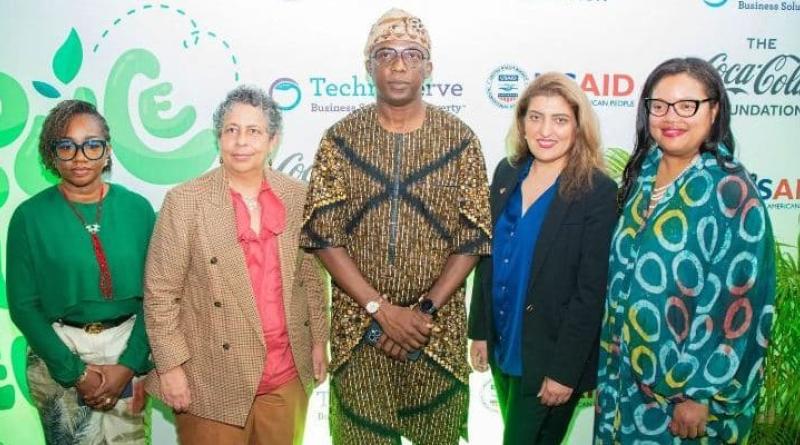NIGERIA: $4m from Usaid and Coca-Cola to improve management of used plastics

At a time when plastic pollution in Nigeria is breaking all records on the African continent, the United States Agency for International Development (USAID) and the Coca-Cola Foundation are funding a new plastic waste management initiative to the tune of $4 million in Nigeria.
Some 49,000 tonnes of plastic waste collected. This is the aim of the Nigeria Plastic Solutions (NPSA) initiative launched on 6 May 2024 in Lagos by the United States Agency for International Development (USAID) and the Coca-Cola Foundation. “The main objective is to recover approximately 49,000 tonnes of plastic waste out of the 2.5 million tonnes produced each year in Nigeria, while increasing the collection capacity of more than 24 aggregators and 9,500 collectors”, says USAID. According to the US agency, $4 million will be needed to achieve this objective.
The Coca-Cola Foundation will contribute $2 million of this funding, which will be used to support innovative solutions for the collection and recycling of used plastics in Nigeria. While the American soft drinks giant is a major player in plastic pollution in the West African country, this initiative aims to reduce its environmental impact in a country where people have been exposed to a high health risk for several years. USAID is contributing $2 million to the project.
Creating at least 10,000 jobs
The Nigerian branch of the non-governmental organisation (NGO) TechnoServe, which promotes commercial solutions to poverty, will recycle the plastic waste collected as part of the NPSA initiative. “We can no longer consider waste as a disposable commodity, but rather as a resource that requires responsible management. We cannot shirk this responsibility. We must face it head on with resolve and determination”, said Tokyo Wahab, Commissioner of the Lagos State Ministry of Environment and Water Resources.
The project will also create more than 10,000 jobs in the waste value chain, working together towards a more sustainable society. This will help to reduce poverty in Nigeria, where 112 million people (more than half the population) live below the extreme poverty line, on less than $1.90 a day, according to the British NGO Oxfam International.



